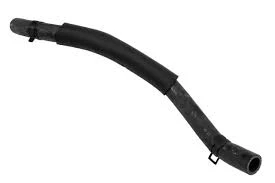High-Performance Fuel Hoses for Efficient Fuel Injection Systems
Sht . 28, 2024 05:37 Back to list
High-Performance Fuel Hoses for Efficient Fuel Injection Systems
Fuel Hose for Fuel Injection Key Considerations and Importance
Fuel injection systems have revolutionized the automotive industry, offering enhanced efficiency, power, and reduced emissions compared to traditional carbureted engines. A critical component of these systems is the fuel hose, which plays a pivotal role in delivering fuel from the tank to the engine’s fuel injectors. Understanding the function, types, and selection criteria for fuel hoses can help ensure optimal performance of fuel injection systems.
The Role of Fuel Hoses
Fuel hoses are responsible for transporting fuel under pressure from the fuel tank to the engine. This pressure is essential for ensuring that the fuel reaches the injectors, where it is atomized and mixed with air for combustion. Unlike conventional carburetors, which operate at lower pressures, fuel injection systems often require hoses that can withstand higher pressures and temperatures. Therefore, the selection of the appropriate fuel hose is imperative for the longevity and efficiency of the fuel system.
Types of Fuel Hoses
Fuel hoses are typically made from various materials, each with its own characteristics suited for different applications. The most common types of fuel hoses include
1. Rubber Fuel Hoses These are often used in less demanding environments and are typically more flexible. However, they may degrade faster when exposed to certain fuel types or harsh conditions.
2. Ethanol-resistant Hoses With the increasing use of ethanol-blended fuels, special hoses are designed to resist the damaging effects of ethanol. These hoses are often required for modern vehicles that are compatible with E85 fuel.
3. Steel Braided Hoses These hoses consist of a flexible rubber inner lining reinforced with steel braiding. They are often used in high-performance applications due to their ability to withstand extreme temperatures and pressures.
4. PTFE Hoses Polytetrafluoroethylene (PTFE) hoses are highly resistant to chemicals and are often used in specialized applications. They have a smooth inner lining that prevents fuel from sticking, promoting better flow.
fuel hose for fuel injection

Key Considerations for Selecting Fuel Hoses
When selecting a fuel hose for fuel injection systems, several factors must be considered
1. Pressure Rating It is crucial to select a hose that can withstand the pressure generated by the fuel system. Most modern fuel injection systems operate at pressures ranging from 40 to 100 psi, so the hose should be rated appropriately.
2. Temperature Resistance Fuel hoses must be able to handle the temperature variations that occur in automotive applications. High temperatures can lead to degradation, leaks, and fuel contamination.
3. Chemical Compatibility Different fuels contain various additives that can affect hose integrity. It is essential to choose a hose that is compatible with the specific fuel being used, especially if it contains ethanol or biodiesel.
4. Diameter and Length The diameter of the hose should match the fuel system’s requirements to ensure proper fuel flow. Additionally, the length of the hose should be sufficient to connect the fuel tank to the engine without any unnecessary bends that could restrict flow.
5. Regulatory Compliance Fuel hoses used in automotive applications must often meet specific regulations and standards set by organizations like SAE International. Ensuring compliance with these standards can prevent issues related to safety and performance.
Conclusion
Fuel hoses play a vital role in the performance and efficiency of fuel injection systems. Choosing the appropriate fuel hose based on material composition, pressure rating, temperature tolerance, chemical compatibility, and regulatory standards is essential for maintaining optimal operation. As automotive technology continues to evolve, understanding the importance of fuel hoses and making informed choices will remain critical for automotive professionals and enthusiasts alike. By ensuring that fuel hoses are carefully selected and maintained, vehicle owners can enjoy improved performance, reduced emissions, and a longer lifespan for their fuel injection systems.
